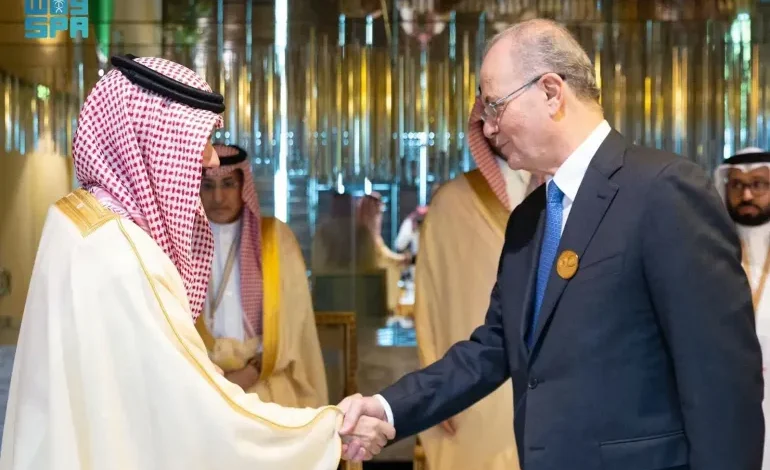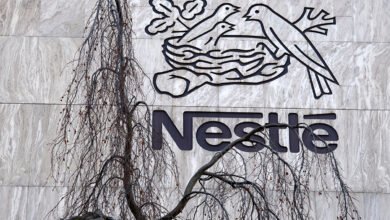
Urgent Talks on Regional Wars as Arab, Muslim Leaders Meet in Saudi Arabia
Saudi Arabia hosts an emergency summit that brings Arab and Muslim leaders together to intervene in Middle East’s escalating conflicts. Representatives from the Arab League and Organization of Islamic Cooperation have assembled in one of the largest diplomatic meetings over the last several years. Their presence expresses deep concerns about current security challenges in the region.
The leaders have made Gaza’s situation their top priority while addressing other urgent regional conflicts. Their agenda covers humanitarian aid coordination and peace initiatives that could stabilize the region. This gathering builds on earlier diplomatic work and explores fresh solutions to the Middle East’s complex challenges.
Summit Objectives and Key Priorities
Saudi Arabia hosted an extraordinary Arab-Islamic summit to deal with the ongoing regional crisis. The summit’s main goal focused on stopping the fighting immediately and protecting civilians in affected areas.
Leaders at the summit agreed on these priorities:
- Military operations in Gaza must stop now
- Safe corridors should open for humanitarian aid
- Essential services need restoration in affected regions
- International law and humanitarian principles must be followed
- A detailed peace process should begin
Saudi Arabia, Jordan, Egypt, Qatar, Türkiye, Indonesia, Nigeria, and Palestine formed a ministerial committee of foreign ministers. This committee began diplomatic talks with world leaders to gain support for an immediate ceasefire and civilian protection.
The summit stressed the importance of a binding UN Security Council resolution. This resolution would address what participants called violations of international humanitarian laws. Leaders want concrete steps to establish an independent Palestinian state based on the June 4, 1967 borders, with East Jerusalem as its capital.
Leaders discussed ways to end Gaza’s siege and support the United Nations Relief and Works Agency for Palestine Refugees (UNRWA). They also called for stopping arms exports to Israel. These actions show their steadfast dedication to bring lasting peace and stability to the region through diplomatic channels.
Notable Attendees and Diplomatic Efforts
Leaders from the Islamic world have gathered at a major summit in Riyadh. Palestinian President Mahmoud Abbas leads a distinguished delegation to the event. His team consists of PLO Executive Committee Secretary-General Hussein Sheik, Prime Minister and Foreign Minister Mohammad Mustafa, Diplomatic Advisor Majdi Khalidi, and Ambassador to Saudi Arabia Mazen Ghuneim.
Malaysian Prime Minister Datuk Seri Anwar Ibrahim made his way to Riyadh from Cairo. He praised Saudi Arabia’s leadership role in organizing the summit. Pakistan’s delegation shows strong support from the Islamic community, with Prime Minister Shehbaz Sharif bringing Information Minister Attaullah Tarar and Special Assistant Tariq Fatemi.
Notable diplomatic efforts continue through Arab League Secretary General Ahmed Aboul-Gheit and OIC Secretary General Hissein Brahim Taha. Saudi Foreign Minister Prince Faisal bin Farhan has held significant bilateral meetings. His discussions with Palestinian Prime Minister Mohammad Mustafa focused on Gaza’s situation.
Iranian President Masoud Pezeshkian could not join due to scheduling conflicts. Vice-President Mohammad Reza Aref represents Tehran instead, which highlights the improving diplomatic relations between Saudi Arabia and Iran. The summit brings together representatives from all 57 OIC member states and 22 Arab League nations. These countries maintain different diplomatic positions towar
Historical Context and Previous Summits
Arab-Islamic diplomatic cooperation has altered the map in the last year. A vital summit in Riyadh during November 2023 changed regional diplomatic efforts and led to several initiatives:
- Formation of the Gaza Contact Group comprising eight nations including Türkiye, Saudi Arabia, Egypt, and Indonesia
- Calls for increased political and diplomatic pressure on Israel
- Recommendations for suspending arms sales
- Proposals to improve humanitarian aid mechanisms
- Requests for international protection of Palestinian civilians
The Organization of Islamic Cooperation’s (OIC) 57 members and Arab League’s 22 members managed to keep different positions on regional integration. Some members recognize Israel while others remain firmly opposed. Last year’s summit in Riyadh exposed these divisions, especially when dealing with measures like cutting economic ties with Israel and disrupting oil supplies.
This gathering builds on earlier diplomatic initiatives that include contact groups and ministerial committees. Saudi Arabia’s recent diplomatic achievements showcase this regional diplomacy pattern. The country restored ties with Iran through Chinese mediation, though regional conflicts don’t deal very well with permanent solutions.
Potential Outcomes and Regional Implications
Regional dynamics could transform due to several key outcomes outlined in the summit’s final statement. The gathering unanimously condemned Israeli aggression and put concrete measures in place to tackle the humanitarian crisis:
- Immediate cessation of weapons exports to Israel
- Creation of media monitoring units to document violations
- Formation of international criminal court investigations
- Implementation of economic deterrence measures
- Establishment of humanitarian aid corridges
These summit resolutions will deeply impact regional stability and international relations. Saudi Arabia has paused normalization talks with Israel and made it clear that diplomatic relations depend on progress toward Palestinian statehood. Arab nations now use their economic and diplomatic influence to push for lasting peace solutions, marking a broader transformation in the region.
Qatar’s growing role as an intermediary between parties shows how diplomatic dynamics continue to evolve. The summit’s outcomes point to possible changes in regional alliances and diplomatic frameworks. Iran’s involvement suggests new mutually beneficial alliances are forming. Arab-Muslim nations seem to take a more unified approach to regional conflicts, though they don’t deal very well with implementation challenges yet.
The Arab-Muslim summit stands as a defining moment that brings regional powers together to address ongoing conflicts. Saudi Arabia has taken the lead to aid concrete actions. They have set up ministerial committees and created humanitarian corridors. Regional leaders have shown unity through their stance on protecting civilians. They just need an immediate ceasefire and back it with practical steps like restricting arms exports and increasing diplomatic pressure.
The Middle East’s diplomatic landscape depends on these summit resolutions. Saudi Arabia has paused its talks with Israel, while Qatar steps up its role to intervene. These moves show how regional priorities now focus on Palestinian statehood and lasting peace. A new era of Arab-Muslim teamwork has begun. The success of these efforts relies on continued support from the international community and the region’s dedication to diplomatic answers.







[…] Saudi Arabia and Iran, traditional regional rivals, have altered the map of Middle Eastern politics through their new cooperation under the Beijing Agreement. This diplomatic breakthrough has changed the dynamics between these two powerful Middle Eastern nations. […]